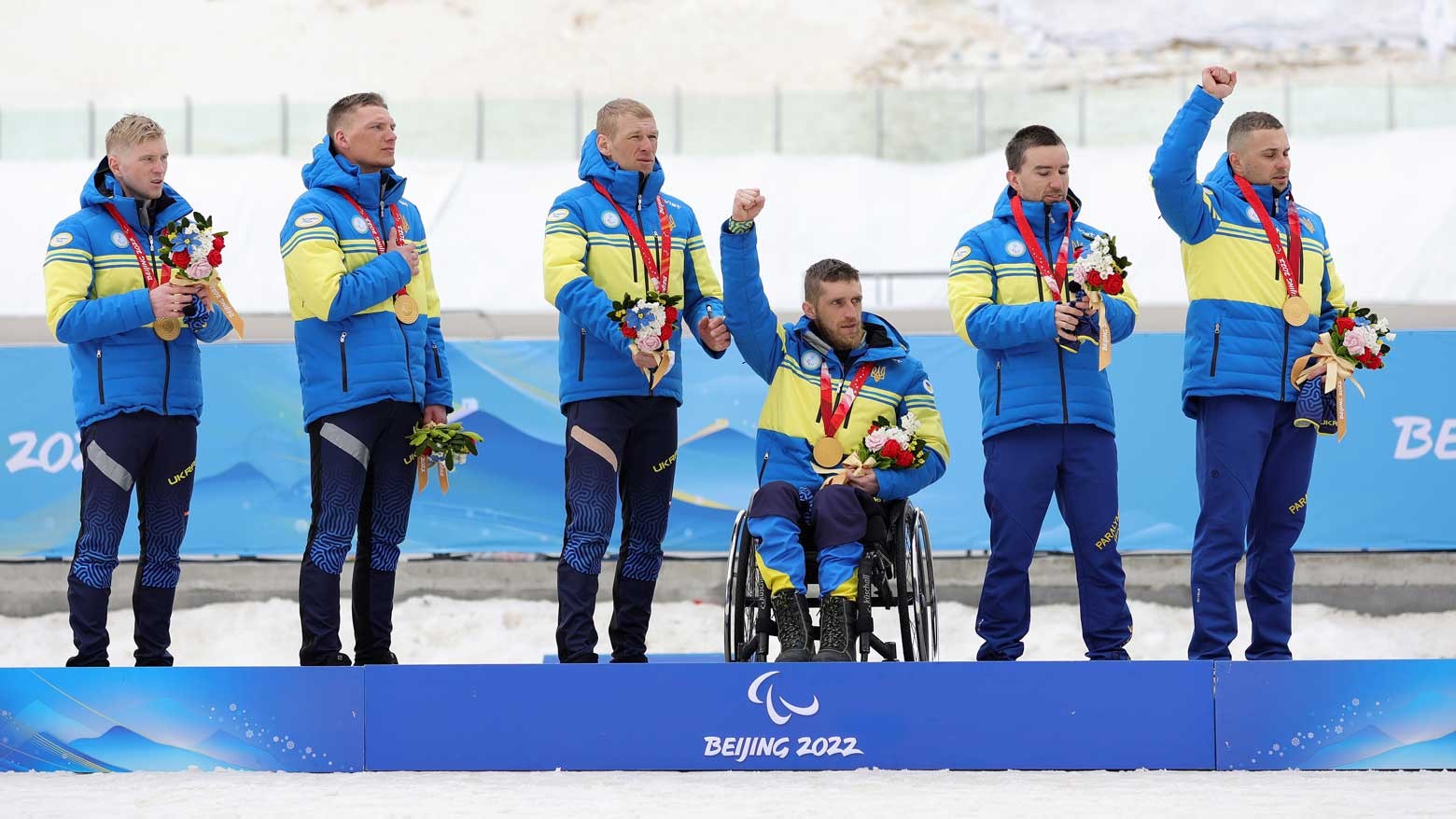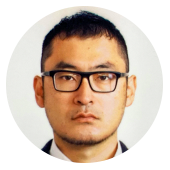Outstanding performances
Ukraine's para-athletes won 29 medals in Beijing, including 11 golds. The country ranked second in the global medal tally and the overall performance was the nation's best showing at a Winter Paralympics.
But the team very nearly didn't make it. Some members were escaping Russian bombs as they embarked on a journey that took several days. Ukraine Paralympic chief Valerii Sushkevych described it as "a miracle" that the 20 competitors, accompanied by officials, managed to get to Beijing just ahead of the March 4 opening ceremony.
During the competition, team members worried about the safety of their families back home. One athlete's apartment was bombed, and another's father was held captive by the Russian military.
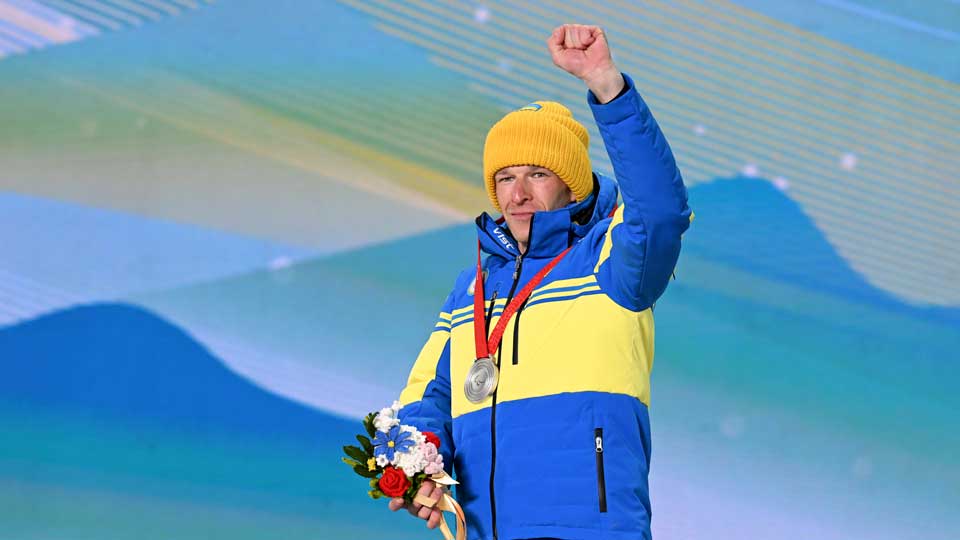
Ukraine team captain Grygorii Vovchynskyi dedicated his gold medal in the biathlon to people back home. "I ran because I want life in Ukraine to move to the future," he said. "Please stop war, it's very important for our children."
Many others had similar messages that they were able to share with the world.
Russia breaks the Olympic Truce
Just days before the Paralympics, Russia attacked Ukraine. In response, the International Paralympic Committee banned athletes from Russia and its ally Belarus from participating in Beijing.
The key reason was that Russia broke what is called the Olympic Truce, something that stems from a tradition established in ancient Greece. It was designed to ensure all hostilities are suspended to allow for the safe passage and participation of athletes and spectators involved in the Olympic Games.
The modern Olympic Truce was adopted by the United Nations in 1993—and once again as recently as December last year. It was co-sponsored by 173 UN member states, including Russia. Despite Moscow's support for the resolution, this is the third time it has launched military action during an Olympic period since 2008.
There are no specific penalties for breaking the truce. But even though it cannot stop wars, it can have an influence, says J. Simon Rofe, a reader in diplomatic and international studies at the University of London. "It provides a level of moral condemnation that we see in a global society. And those forces are at work in the conflict in Ukraine," he explains.
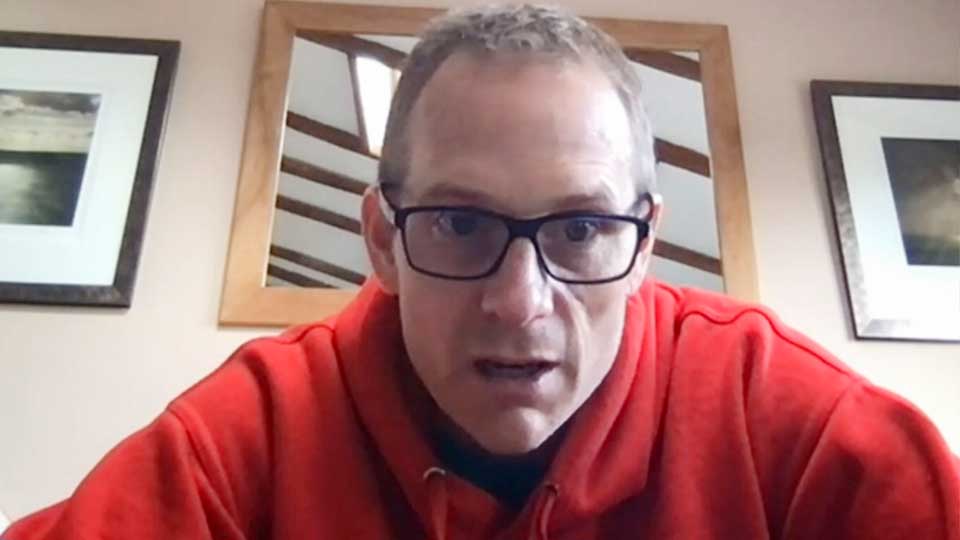
"Absolutely politicized"
The Russian team had already arrived in Beijing when the ban was announced. One coach spoke out as they prepared to leave. "We have been working on sports sincerely, but it is no longer possible to speak of sport without politics," he said. The Russian Paralympic Committee issued a statement that described the decision as "absolutely politicized."
According to Rofe, the separation of sports and politics is a "myth." He says sport reflects, and is influenced by, politics—something that was illustrated in Beijing. During the Paralympics, anti-war political messages calling for peace from athletes, coaches and officials were front and center.
At the opening ceremony, International Paralympic Committee President Andrew Parsons raised both fists as he shouted "peace" in one of the Games' memorable moments.
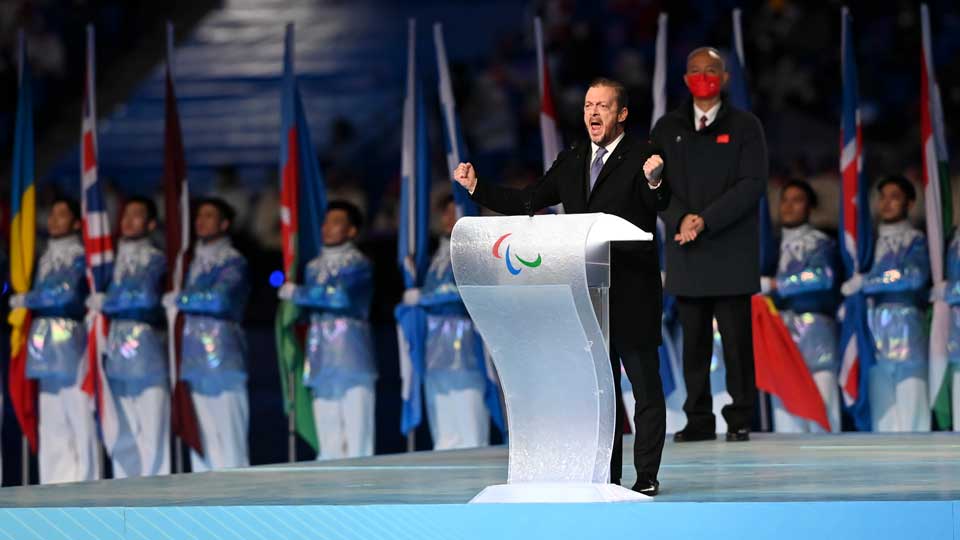
Making the most of the spotlight
In addition to calling for peace, and encouraging support for Ukraine in media interviews, Ukrainian athletes and officials also flew anti-war flags and posted videos on social media. The Games served as a platform for their political messages as well as a showcase of their athletic prowess.
Ukrainian team chief Sushkevych said many of the athletes' inspiring performances were motivated by what was happening back home. "We know how much our participation means to the Ukrainian people. We are glad we are fighting for them," he said in a media interview.
Rofe says sport gives people "the opportunity to share in an emotional bond that transcends language and culture."
"During the most difficult of times, your performances shone brightly," the IPC's Parsons told all athletes at the closing ceremony. He called them "champions for peace" and noted a spirit of unity that fostered hope.
